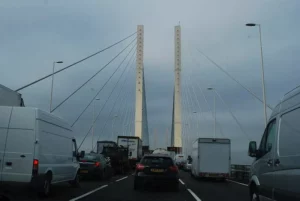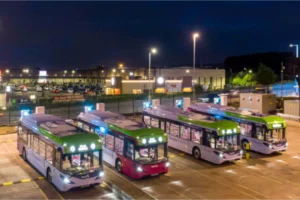By Richard Hayes, former Chief Executive and Past President of the IHE and consultant at Hayes ProTech Ltd
A letter form Baroness Vere, the Roads Places and Buses Minister to all English local authorities at the end of April stressed the need to ‘continue with routine business’ in relation to their highway maintenance works included in the government’s list of essential works and to make sure the highway network is fit for purpose when the country returns to a more normal situation.
This letter was prompted by the differing approaches made by highway authorities to their work since the lockdown in March. Some have continued to carry out their normal routines, whilst other have furloughed staff and only dealt with emergency situations. Other authorities have diverted their resources to assist with the response to the pandemic. Such decisions have often been made at a political level with some council leaders not wanting to defend highway works being carried out when other work activities have been curtailed.
It should be stated that any works undertaken should follow as much as possible the strict social distancing rules wherever possible.
However, many workers have ben the victims of verbal abuse from the general public, probably unaware of the essential status of the works being undertaken and this was recognised in the letter form the Minister.
Of course, the effect on the supply chain has been significant. Builders merchants, quarries, specialist sub-contractors and of course term maintenance contractors have been dramatic and the call from the government to get highways works going again should add some assurance to these organisations.
Continuance of highway works will also reduce the potential of contractual claims due to postponement of activity.
So why is highway maintenance seen as an essential activity? It should be obvious that poor infrastructure leads to inefficiency in business and the costs are then bourne by us all.
However, some other issues some into play. Early spring and summer are the normal seasons when road surfacing works such as surface dressing are undertaken. If the season is missed, then these works cannot be undertaken at other times and the effect of not surfacing millions of square metres of carriageway will result in a sever increase in repairs in the winter months. Contractors in this field work to a very tight schedule with very finite resources and with only a small allowance for bad weather and therefore delaying this work or squeezing it into a shorter time frame is not an option. In rural areas this work is vital in maintaining a reasonable network.
There are some benefits from the current situation; the obvious issue of exceptionally low traffic flows during this period should be taken advantage of and will reduce some of the costs of traffic management in former busy periods. The dramatic drop in oil process should filter down to reduce transport costs and the many oil base products used in surfacing.
DfT has again given local highway authorities generous allocations to bring the local road network back to a reasonable standard and with further allocations due shortly the supply chain needs as much time as possible to deliver the programmes. Cramping programmes will, lead to some works being omitted, and increased costs due to an increase in demand.
In the current pandemic situation highway works will often come well down the nations list of priorities and no one can dispute the effect of around 30,000 deaths in the UK. However, we must plan for the post pandemic situation and good infrastructure is vital in a rebuilding process.
There is some excellent guidance available to clients and contractors to ensure that the health and safety of all involved is safeguarded and Ministerial advice insists on this being followed so the support is there should any authority fear any repercussions.
Business as usual should not be seen as a bold approach but as a necessary way of ensuring the recovery of economy of the UK is not hindered by potholed and badly maintained roads which lay fallow during the lockdown when so much could have been done to maintain it.





















